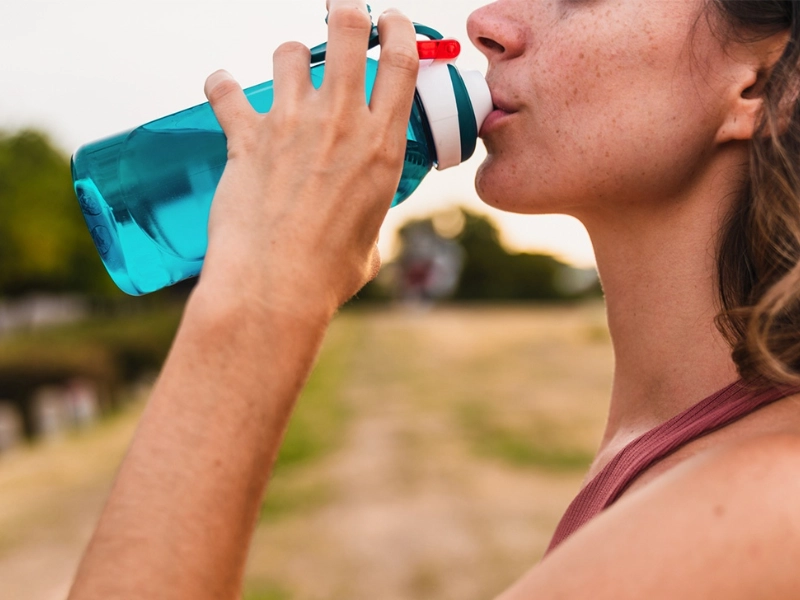3. Factors Affecting Your Daily Water Needs

Although there are basic recommendations for water intake, reality is that individual hydration requirements vary greatly. Knowing the elements affecting your body's water need will enable you to more precisely control your fluid intake. Let us examine the main factors influencing your daily water intake.Among the most important elements is your degree of physical activity. Your body loses water by sweat when you work out or participate in any demanding activity. You will need more water to replenish the more vigourous the activity is and longer it lasts. For a one-hour high-intensity workout, for example, a person will need more water than someone who has spent the day seated at a desk. It's not only about making up for what you lost during the exercise; performance and recuperation depend on enough water both before and after exertion.Your water needs are significantly influenced by environmental factors including climate. Because you sweat more to control your temperature, hot and humid weather raises your body's water needs. Likewise, high altitudes can hasten fluid loss by more fast breathing and more frequent urinating. You will probably have to boost your fluid intake to keep adequately hydrated if you are heading to a warmer area or higher elevation than you are used to.Your hydration requirements can be much influenced by your general state of health as well as any medical disorders you have. Some diseases, such diabetes or heart disease, could call for you to focus especially on your fluid consumption. Rapid fluid loss brought on by fever, diarrhoea, and vomiting calls for more water intake to help avoid dehydration. Higher fluid demands also help pregnant and nursing women support their changing bodies and milk output.Additionally very important for hydration is diet. The things you consume help you consume fluids generally. A diet abundant in fruits and vegetables—which have great water content—will help you stay more hydrated than one heavy in processed foods. Furthermore influencing your body's water retention or excretion is your diet's sodium and protein content. For example, high sodium intake might raise your body's water requirements as it works to preserve appropriate electrolyte balance.Another consideration influencing hydration demands is age. Our body loses water-conserving abilities as we age, and our sense of thirst could grow less sharp. Older persons are more likely to be dehydrated thus they could have to be more aware of their fluid consumption. Children may therefore require rather more fluids per kilogramme of body weight and have a greater percentage of body water than adults.Furthermore influencing your hydration level are some drugs. Diuretics, for instance, can cause fluid loss and raise urine output. The body may dry out from some antidepressants and antihistamines. If you take any drugs, you should be aware of their possible effects on your hydration and modify your fluid consumption.Still another consideration is body composition. Higher muscular mass people usually need more water since muscle tissue has more water than fat tissue. Men, who typically have more muscle mass than women, sometimes have higher recommended fluid consumption for this reason among others.Finally, your daily activities and general way of life can affect your demand for hydration. Those who work outside or in warmer surroundings, for example, will probably need more fluids than those in air-conditioned offices. Likewise, frequent travelers—especially those who fly—may have to pay particular attention to their hydration because of the dry climate of aeroplanes and the possibility of jet lag upsetting regular drinking patterns.Knowing these elements will enable you create a more customised strategy to hydration. Rather of following a one-size-fits-all guideline, you should evaluate your particular situation and modify your fluid consumption. The secret is to pay attention to your body, remain conscious of your surroundings and activities, and regularly include hydration into your daily schedule.
Advertisement
Recommended Reading: Flight Attendant Secrets That Will Change How You Fly
You are viewing page 3 of this article. Please continue to page 4



























Comments
Leave a Comment
Your email address will not be published. Required fields are marked *